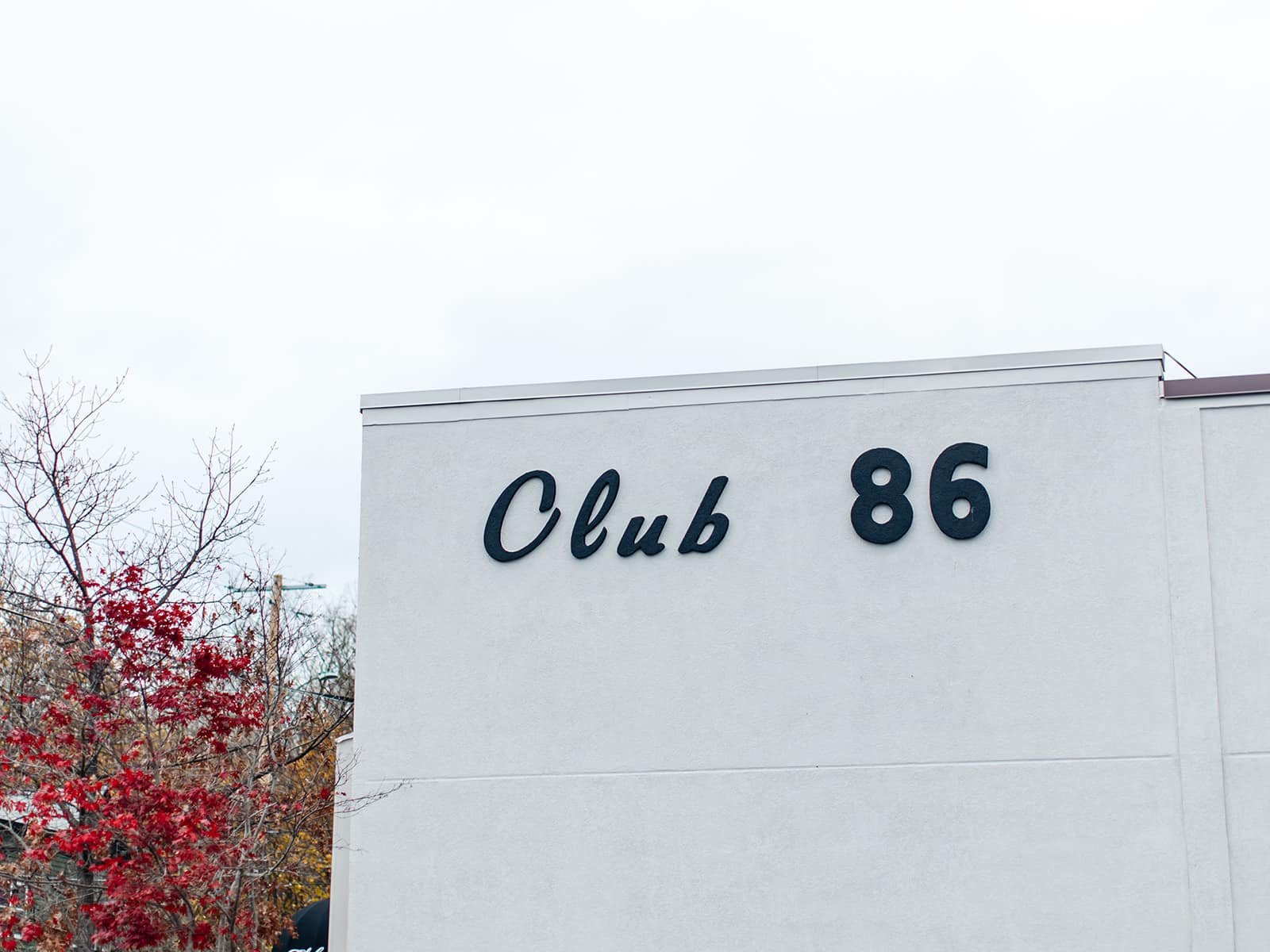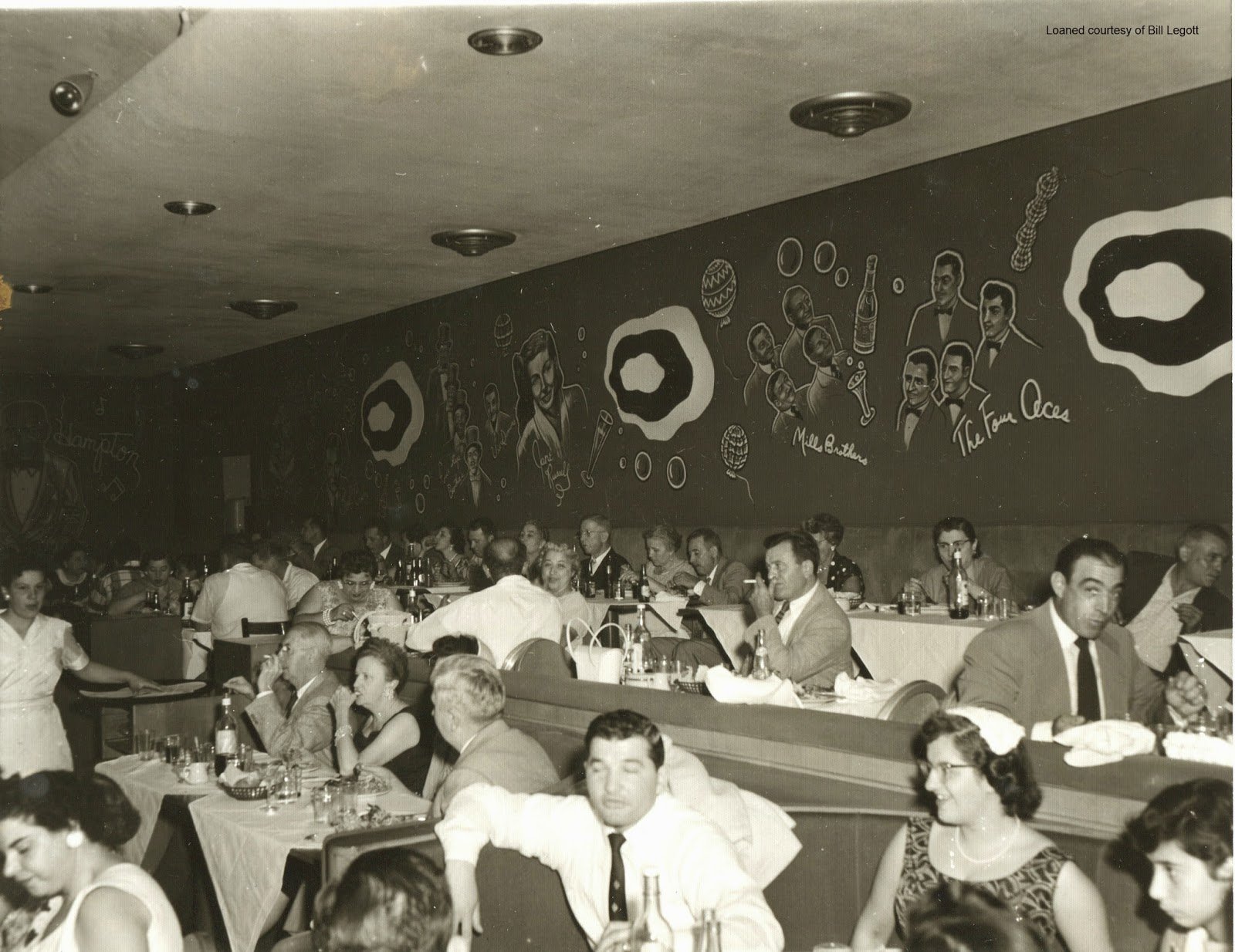If the walls could talk
Club 86 has humble beginnings as Legott’s Bar & Restaurant, a family restaurant in the 1900s. When son Jim & wife Eileen returned from WWII in the 1940’s, they added an addition and the #room would arguably become the hottest spot in the Country for Jazz, featuring greats like Ella Fitzgerald, Louis Armstrong, Dizzy Gillespie, Nat King Cole, Lionel Hampton, Buddy Rich, and Tony Bennett. In the 1960s The Club transitioned from a nightclub to a lively private party house. But if you listen closely you can still hear the music and the stories that made The Club what it is today. That history can still be found hanging on the walls through autographed pictures of the many of stars who have performed there.Jim & Eileen worked at The Club almost everyday until Jim passed away in 1999, they left behind a well earned reputation that The Club will be forever known as Steady and Loyal. Their son Bill and his wife Lori continued to grow The Club to what it is today; a business that is purposeful, approachable, meticulous and adaptable. Bill continued to earn the reputation by being fair, honest, and trustworthy, he was always willing to try something new, while loyally always protecting tradition. Lori can still be seen dishing out Chicken and Ziti, the Fourth Generation of Legott’s will continue to carry on what Jim and Bill left behind, Alex, Sarah, Eric & Allison are Charismatic, Ambitious, Diligent and Resourceful. They will continue the tradition; play the music, tell the stories, bake the chicken, but at the same time they will continue to grow using their own travels, experiences, and life lessons. Things to look for; updated marketing, homemade pizzas and pastas, curated wine lists and updated decor. Together as Family they will continue to always deliver more than expected.Although Club 86 has remodeled a bit since its heyday, autographed pictures of the stars that performed there, hang on the walls. Today, the Club is a private event venue that is available for weddings, banquets, catering’s and just about any get together.The scene is Club 86, a party house. Photos and contracts bearing well-known signatures line the walls near the door. Ghosts from the days when the place drew internationally known entertainers seem to fill the air. You can almost hear the music echoing if you listen hard enough, unless those drums are really just the crash of platters and serving trays in the kitchen.
There was a time when music knit this nation together. In the late 1940s and early 1950s, a circuit of performers traveled from New York to Los Angeles and back again, making its way through small towns that dotted the nation's largest railways. Radio, televsion, and film appearances had made some of these performers international celebrities; but with the mass-production and analog distribution of music still a pipe-dream for the future, these artists still made their living on the road, one local appearance at a time.
Jim Legott returned from World War II to the small town of Geneva, NY with a new dream for an old family business. The Legott Family Restaurant had been serving warm meals to Italian immigrants of the Torrey Park neighborhood since the end of the nineteenth century - the restaurant's biggest claim to fame being a baked chicken recipe that still impresses the taste buds. Legott had seen supper clubs in New York City during his tour of duty and realized that he could sell more of his family's famous chicken if his restaurant featured performances by popular big bands, jazz singers and movie stars. By virtue of the restaurant's location - somewhere between New York City and Chicago on the Black Diamond Line and steps away from the Lehigh Valley Railroad Station that accommodated it - the club attracted the attention of the William Morris Agency which saw it as a potential stop-over venue for touring attractions. One year and an enormous renovation later, the restaurant re-opened in 1946 as CLUB 86 - and the rest is history.
Between 1946 and 1955, despite being nestled in a small town, Club 86 played host to some of the greatest talents of all time - performers like Nat King Cole, Tony Bennett, Ella Fitzgerald, Jane Russell, Lionel Hampton, Sarah Vaughn and Louis Prima, just to name a few. With these big-city names came big dreams for small-town inhabitants of Geneva, NY. New ambitions seemed within reach, especially for young aspirants like Scott LaFaro, a Geneva native who grew up on the music of these traveling shows and later became one of the world's greatest bass players.
But big-town influences also brought questions, confusions and conundrums. Jane Russell was best known for her X-Rated turn in The Outlaw when she arrived at Club 86. Nat King Cole, one of the most famous men in the world when he arrived in town, was forced to stay in a railroad car on the nearby tracks due to a lack of accommodations for black performers. The self-proclaimed "Drag King of Greenwich Village" blurred gender lines, dressing like a man while managing burlesque acts that came through the club. And organized crime families from both New York and Chicago took note of the burgeoning business, tempting local youth into relationships with local extensions of the "Black Hand" and threatening the relative peace of the small town.
The spectacle of conservative values that would come to dominate American culture in the 1950s was not a necessary outgrowth of post-war prosperity, but rather the result of - or even backlash to - a culture of progressive social beliefs that emerged during wartime - a culture that traveled by rail, from town to town, through a circuit of supper clubs like Club 86. On dance floors, in plush banquets, and behind the scenes of these clubs, our grandparents renegotiated the American social contract, transforming the ways they would perceive race, gender, and sexuality, and setting the stage for a progressive social politics that we still grapple with today.
There was a time when music knit this nation together, one supper club at a time. This is the story of that time, told through one such club. A celebration of song and dance in an era of unprecedented cultural confusion, Club 86 reminds us of the movement toward equality, fair treatment and tolerance started by our Greatest Generation, and helps us to pick up where they left off, one song at a time.
-Jim Augustine
Writer / Director / Producer












